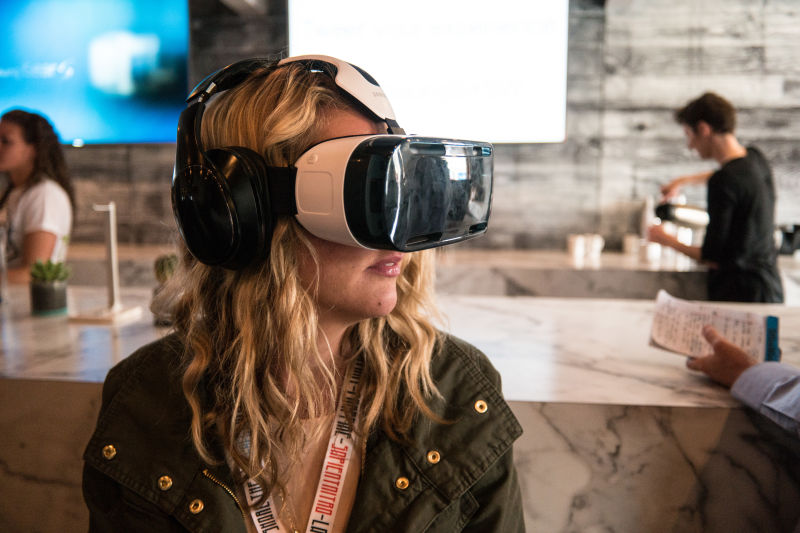Virtual reality may be an emerging technology, but it's already making an impact in health care.
Virtual reality or "VR" goggles offer an immersive and three-dimensional experience. People who have worn VR goggles from Oculus Rift, Google Cardboard, or Samsung Gear VR describe the experience as highly realistic—you're sitting in your living room but you feel like you're surfing a wave, playing with dinosaurs, or walking on the moon.
At the Exponential Medicine conference in San Diego last week, virtual reality was all the rage. During the medical education track, doctors showed off a new video, which is designed to be viewed from an Oculus Rift headset. The video was produced by London-based Medical Realities, a business focused on bringing gaming and virtual reality to medical education.
If you don't have access to a pair of VR goggles, but do have a newer computer and software, it's still worth a watch. Try dragging your cursor from a regular old smartphone or desktop to change the angle of view.
